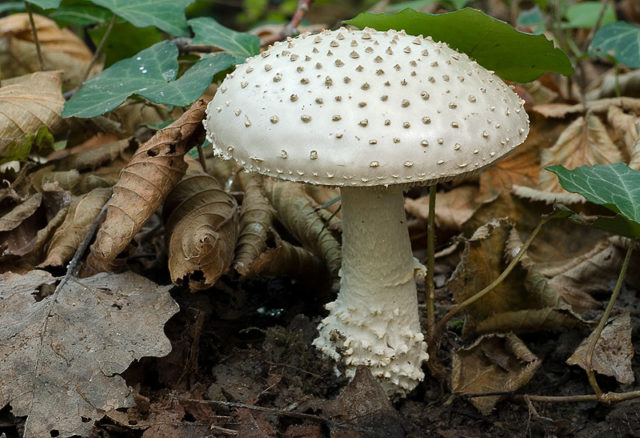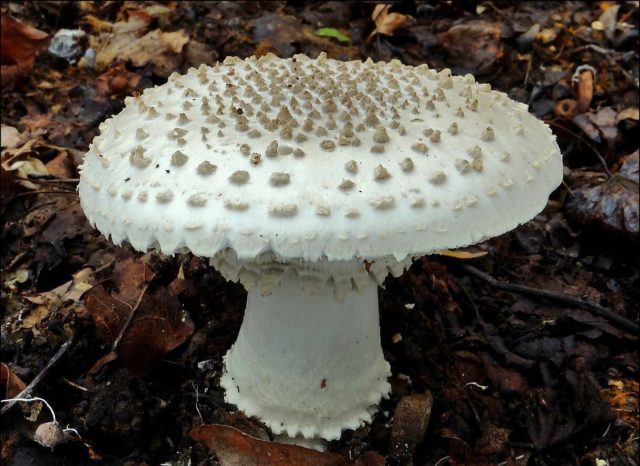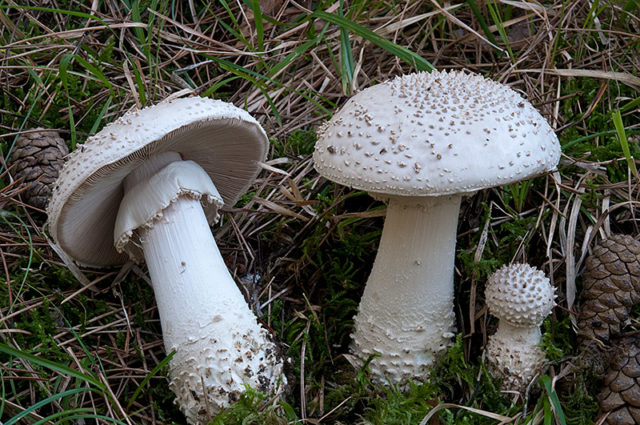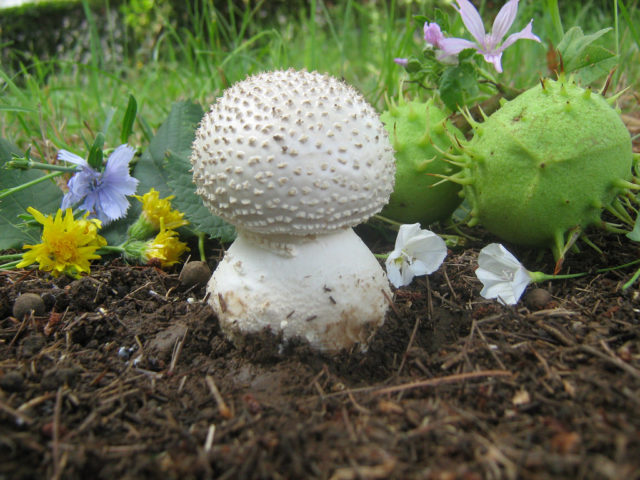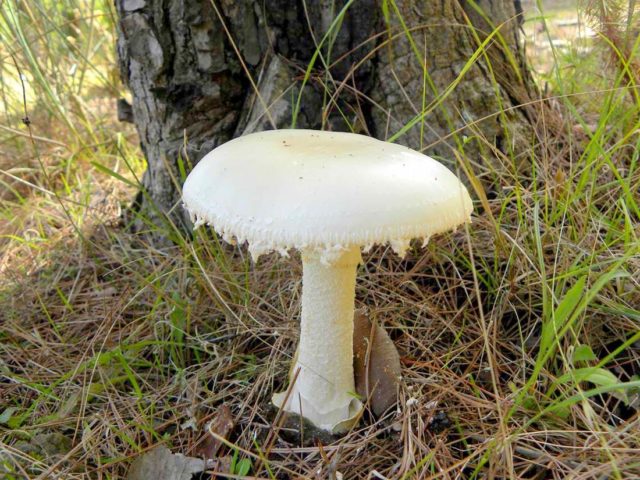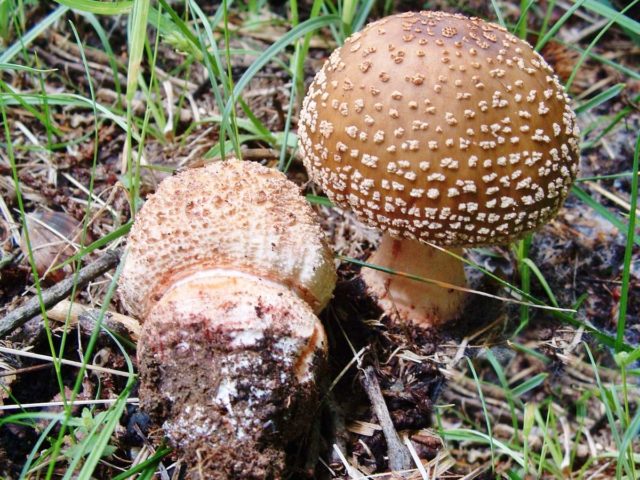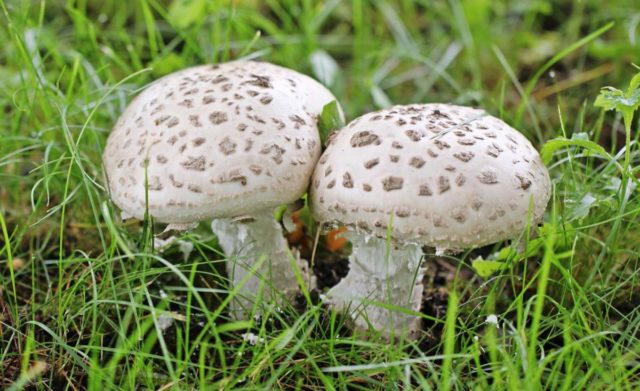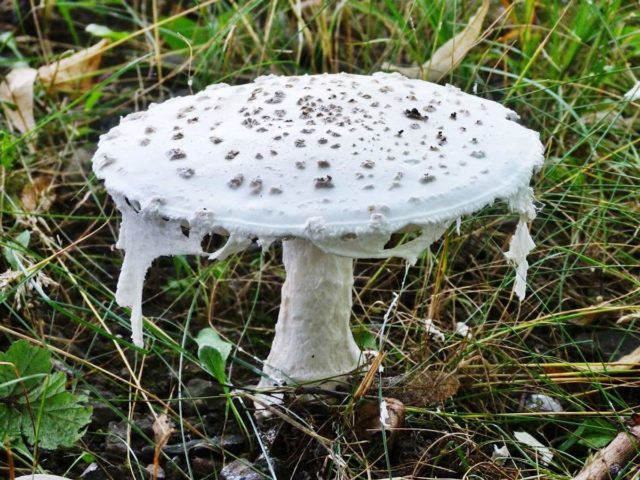Content
Amanita muscaria (Amanita echinocephala) is a rare mushroom of the Amanitaceae family. On the territory of Russia, the names Fat bristly and Amanita are also common.
Description of bristly fly agaric
This is a large mushroom of light color, its distinctive feature is the numerous rough growths on the cap. Can be confused with other species that are both edible and poisonous. To distinguish from doubles, it is important to know the description of the Amanita muscaria.
Description of the hat
The hat at the initial stage of development resembles an egg. As the fruiting body grows, it opens up, becomes flat. Diameter - 12-15 cm. The pulp is dense, fleshy. On the edge of the cap in mature Fats, small teeth are sometimes located.
The color is white or light gray, with time it becomes light ocher. There is a greenish tint. On the surface of the cap there are numerous "warts" - cone-shaped growths of the same color as the fruiting body.
The hymenophore under the cap is lamellar. The plates are wide and often located, but freely. In young mushrooms, they are white; as they develop, they acquire a yellowish color.
Leg description
The leg is wide and powerful. It expands at the base. Its height is 12-20 cm, thickness is 1-5 cm. The color is white or light gray, sometimes yellow or ocher tones are present on the stem.
On the surface, small growths are noticeable, like on a cap, and whitish scales, but in smaller quantities. Sometimes they are missing.
Under the cap on the leg there is a characteristic ring-skirt, which consists of free fibers.
Doubles and their differences
The Bristly Fat has several doubles. Not all of them are edible, so you need to know the differences.
Amanita muscaria (lat.Amanita ovoidea), conditionally edible mushroom. Can be fried or boiled and only then eaten.
Unlike Amanita muscaria, it does not have rough embossed blotches on the cap.
Amanita muscaria grows in mixed forests, under beeches.
Amanita pearl (lat. Amanita rubescens), or Amanita muscaria, or gray-pink - a common double. It grows in both coniferous and deciduous forests. Fruiting from July to late autumn.
It differs from Amanita muscaria in a brownish-buffy cap color. He smells good, unlike Fat Man. If you make a small cut on the cap, the white flesh turns red.
Amanita muscaria is eaten after heat treatment. The mushroom is classified as edible.
Amanita muscaria (Latin Amanita strobiliformis) is another twin, a rare species. The difference from the Bristly Fat Man is the color of the "warts" on the cap. They are darker - a grayish shade.
Amanita muscaria on the territory of Russia is found in the Belgorod region.Fruiting - from July to September.
Amanita is a pineal conditionally edible mushroom, but it is not recommended for consumption. The pulp of the mushroom contains hallucinogenic components, albeit in small amounts. In addition, it is easily confused with the poisonous Fat bristly.
Where and how does the bristly fly agaric grow
It is a rare species that grows in deciduous or mixed forests, more often in oak forests. Groups of mushrooms are found near various bodies of water.
In Russia, the bristly fat man is common in Western Siberia. Mushrooms are harvested from June to September.
Edible bristly fly agaric or poisonous
Amanita muscaria should not be eaten, even after heat treatment. The mushroom is classified as inedible - its fruiting body contains a large amount of toxic substances.
Poisoning symptoms and first aid
The first signs of poisoning appear 2-5 hours after eating. These include the following symptoms:
- severe nausea;
- vomiting;
- profuse sweating and salivation;
- frequent loose stools;
- pain in the abdomen;
- constriction of the pupils;
- pronounced shortness of breath;
- lowering blood pressure.
In case of severe poisoning, which occurs after eating a large number of mushrooms, the nervous system is damaged. The victim is dizzy, delirious.
If nothing is done in time, the poisoning proceeds to the next stage - convulsive contractions of the pharynx, hallucinations, severe attacks of fear, while stomach upsets are alleviated. Sometimes attacks of aggression occur, the condition of the victim resembles alcohol intoxication.
At the first sign of poisoning, you need to call an ambulance. To alleviate the symptoms of poisoning before the arrival of doctors:
- Cleanse the stomach cavity by drinking 4-6 glasses of water or a weak solution of potassium permanganate (the liquid should be light pink, almost transparent).
- If there is no stool, a laxative or castor oil should be given.
- It is recommended to put cleansing enemas several times.
- For severe pain, you can apply warm heating pads to the abdomen.
- In case of nausea and vomiting, it is necessary to drink salted water in small sips (1 tsp for 1 tbsp. Of water).
- If you are very weak, you should drink a cup of strong sweetened tea, black coffee or milk with honey.
- To protect the liver from toxins, it is recommended to ingest milk thistle extract or "Silymarin".
Conclusion
Amanita muscaria is a dangerous inedible mushroom that causes poisoning. Eating this species is extremely rarely fatal, but the components contained in its pulp can cause serious harm to health. You should also be wary of twins - they are either inedible, or conditionally edible mushrooms, or edible, but need to be heat treated before eating. If a mistake was made in the preparation of dishes from these mushrooms, poisoning is possible.
Additionally about what the Amanita muscaria looks like:
